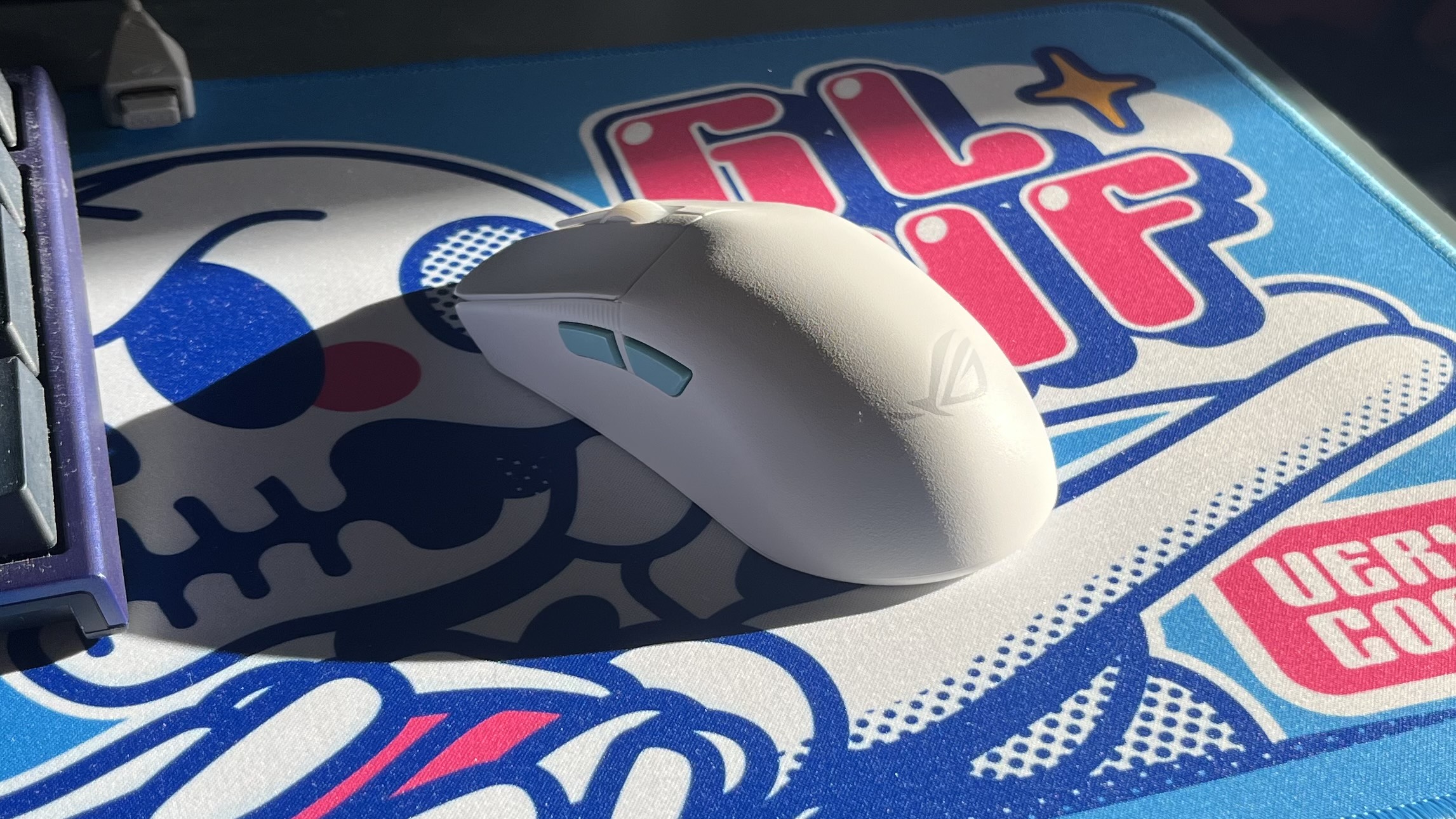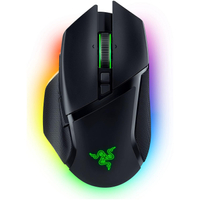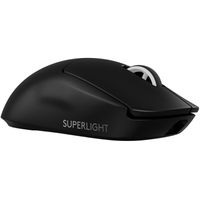TechRadar Verdict
With its lightweight design and seriously impressive performance, the Asus ROG Harpe Ace Aim Lab Edition is a great all-round choice for esports. Its price tag might seem high for a mouse, but this is very much justified by its top-of-the-line specs.
Pros
- +
Incredibly lightweight
- +
Great specs
- +
Tasteful RGB lighting
- +
Aimlabs compatibility
Cons
- -
DPI switch is on the underside
- -
Limited software
Why you can trust TechRadar
Asus ROG Harpe Ace Aim Lab Edition: Two-minute review
The Asus ROG Harpe Ace Aim Lab Edition doesn’t come cheap, but it absolutely nails all the important features for a premium wireless gaming mouse. Its ambidextrous symmetrical form factor is streamlined and comfortable, making it ideal for longer play sessions or competitive settings. The responsive micro switches deliver clean, satisfying clicks that easily keep pace with even the fastest moments of first-person shooter titles like Counter-Strike 2 or Call of Duty: Modern Warfare III.
It’s a very versatile mouse too, with support for USB-C wired play in addition to wireless connectivity via Bluetooth and the proprietary 2.4 GHz Asus ROG Omni Receiver. Although the report rate of up to 1,000 Hz isn’t the highest on the market, it's more than enough for competitive use and I didn’t experience any noticeable latency using any of the three connection types during my testing.
Even so, the inclusion of a dongle extender in the package is a great added bonus, as it allows you to clip the ROG Omni Receiver directly to your mousepad to further reduce the chance of latency affecting your aim. This is especially important given the clear focus on esports, where many pros tend to veer towards wired gaming mice for their reliability.
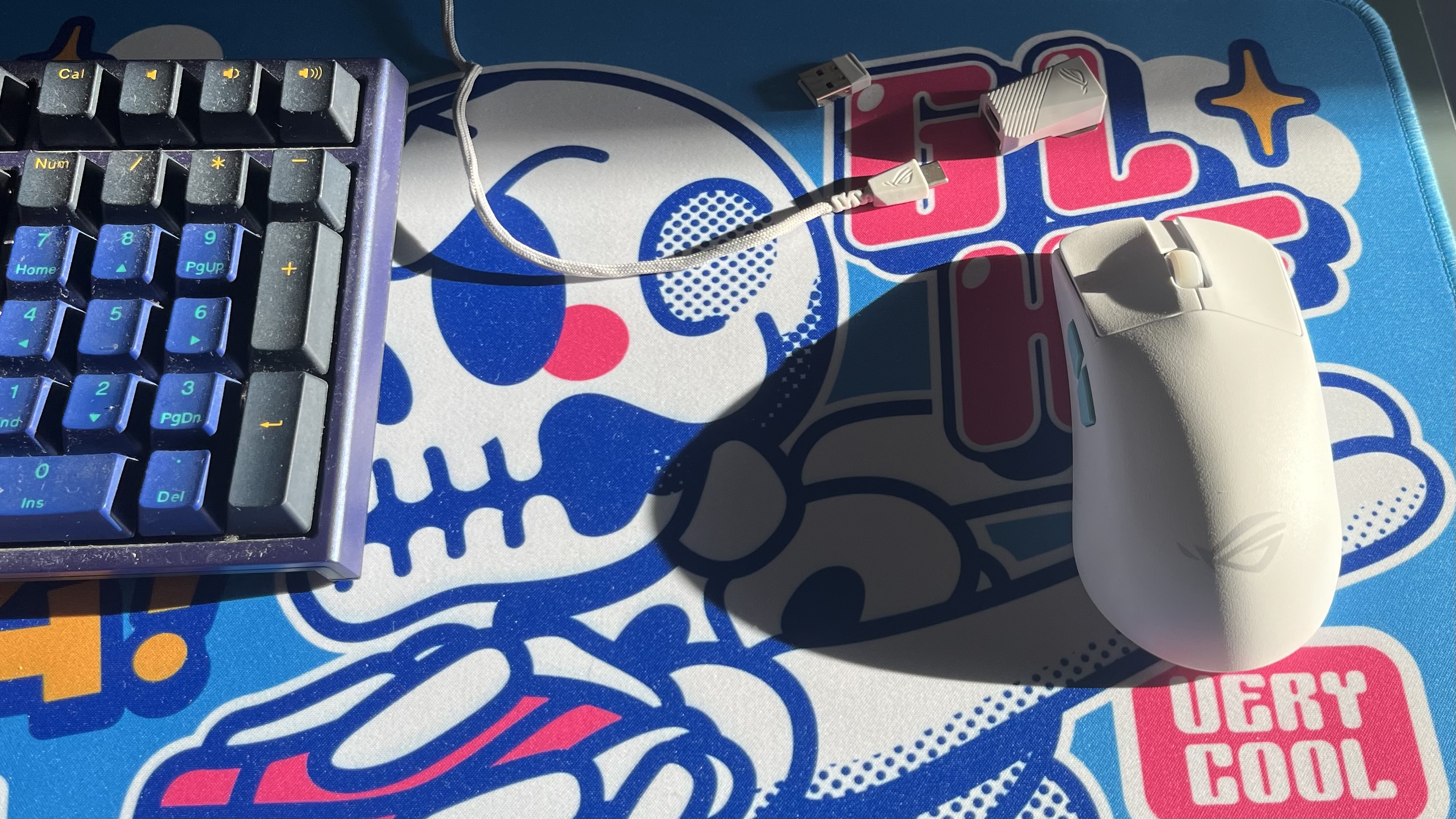
There are two color options to choose from: black and white. In addition to a ROG logo on the palm rest, both sport two baby blue side buttons that inject a little color to help give an otherwise utilitarian design some element of personality. The RGB scroll wheel, while nothing ground-breaking, adds a further element of customizability thanks to the option to illuminate it in a variety of basic colors and modes. It even alerts you when the battery is running low, which should help prevent you from ever being caught out by a depleted mouse in the middle of a match.
There’s some optional grip tape for the mouse buttons and sides too, though you’re unlikely to really need it given the grippy, premium-feeling plastic used across the mouse. The side also sports grooves (alongside a very subtle Aim Lab logo decal) which prevents the mouse from ever feeling slippery in the hands.
The Asus ROG Harpe Ace Aim Lab Edition certainly looks premium, but it also packs some seriously high-end specs under the hood. The first area where this mouse really raises the bar is its sensitivity, which is a staggeringly high 36,000 DPI. It goes without saying, but this will be more than enough to satisfy even the twitchiest competitive gamer and should comfortably make this model worth considering if sensitivity is your number one priority.
That’s not all it has to offer, though, as the ultra-light 1.90oz (54g) weight is very impressive too. This is lighter than even the Logitech G Pro X Superlight 2 Lightspeed, which comes in at 2.12oz (60g), and makes for a mouse that is not only very easy to transport but can glide smoothly across most surfaces with little friction or fatigue. There are still lighter mice around, like the wired 1.66oz (46g) Asus TUF M4 Air, but it's quite remarkable to see a wireless option this light.
There is also the matter of the Asus ROG Harpe Ace Aim Lab Edition’s namesake: its compatibility with Aimlabs. For those not in the know, Aimlabs is a freemium aim trainer program that is a popular choice for training among competitive FPS players. Aimlabs sees you undergo a series of short exercises, namely clicking on various targets in blank environments, in order to evaluate your overall performance. The Asus ROG Harpe Ace Aim Lab Edition is able to automatically find your ideal mouse settings based on these tests, even saving them to a special profile for easy access.
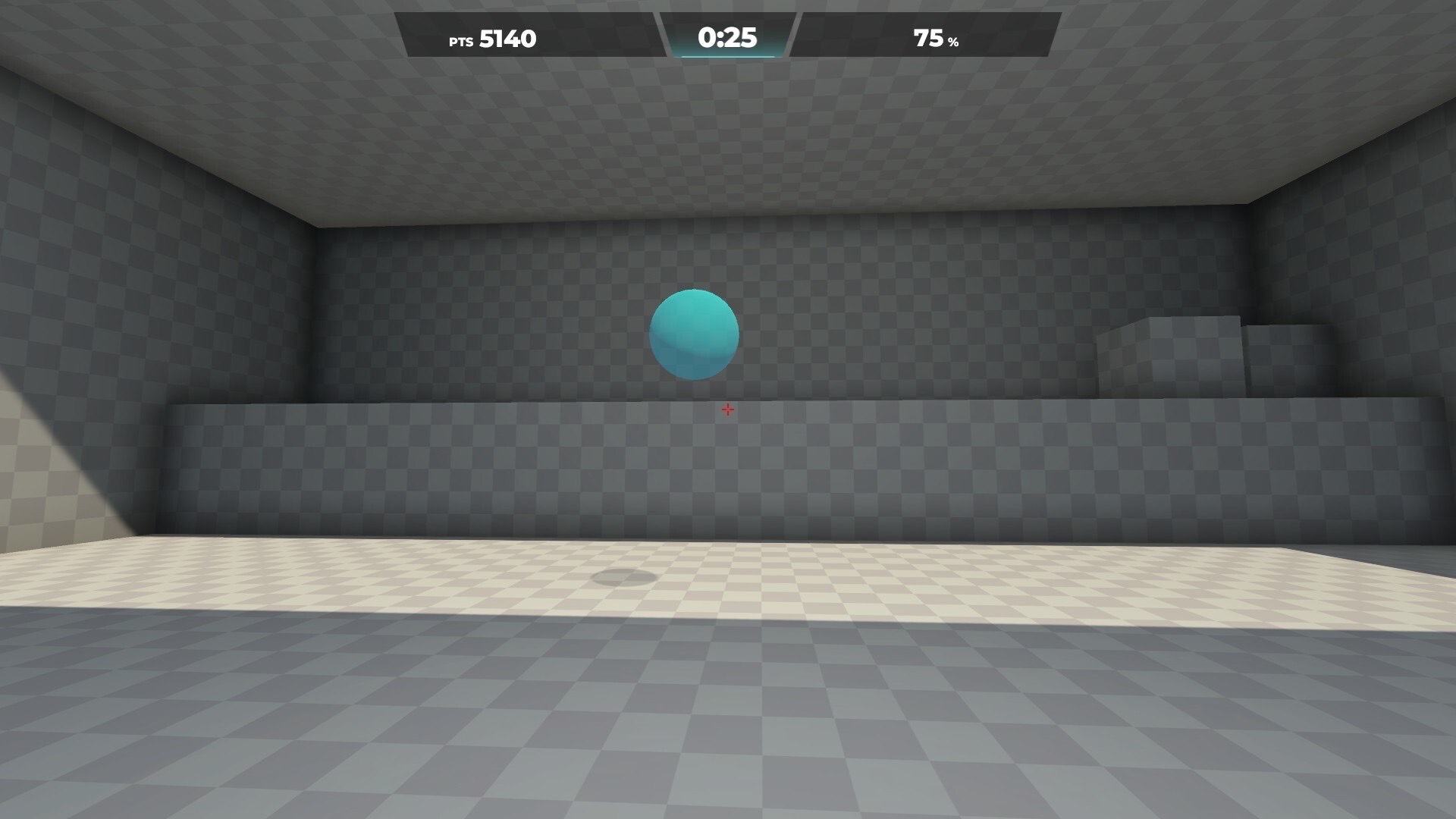
Although most esports competitors will likely already know their own preferred settings, this is still a brilliant addition that could prove genuinely game-changing for those not quite at that professional level. It is a shame, though, that the features offered by the compatible ROG Armory Crate software aren’t so strong. All the basics like the option to change your DPI, map buttons, or calibrate your mouse are at least here but the lack of premium additions like the ability to download profiles from the internet leave it lagging behind the offerings from leading esports brands like Zowie.
The only other real issue is the placement of the DPI button which is, unfortunately, on the bottom of the mouse. While this might not be an issue for some, I am someone who enjoys creating specific profiles for different games and alternating between them quite frequently so having more limited access to the switch is a little annoying.
Asus ROG Harpe Ace Aim Lab Edition: Price & Availability

- How much does it cost? $139.99 / £139.99 / AU$189
- When is it available? Available now
- Where can you get it? Available in the US, UK, and Australia
Coming in at $139.99 / £139.99 / AU$189, the ASUS ROG Harpe Ace Aim Lab Edition is very much a high-end product. Even so, it is less expensive than current esports favorites like the Logitech G Pro X Superlight 2 Lightspeed, which costs $159 / £149 / AU$299, and features better specs in most important areas including DPI and weight.
The real question here is whether it’s worth actually getting a wireless gaming mouse for esports in the first place. The wired Razer DeathAdder V3 features a higher report rate of 8000 Hz, a 2.08oz (59g) weight, and a very sensitive 30,000 DPI all for just $69.99 / £69.99 / around AU$99. Considering how many esports pros use wired mice, it might be worth weighing up just how much of a premium you’re willing to pay to cut out the cord. If you are shopping exclusively for wireless options, however, this is a very reasonable price for what you are getting.
Asus ROG Harpe Ace Aim Lab Edition: Specs
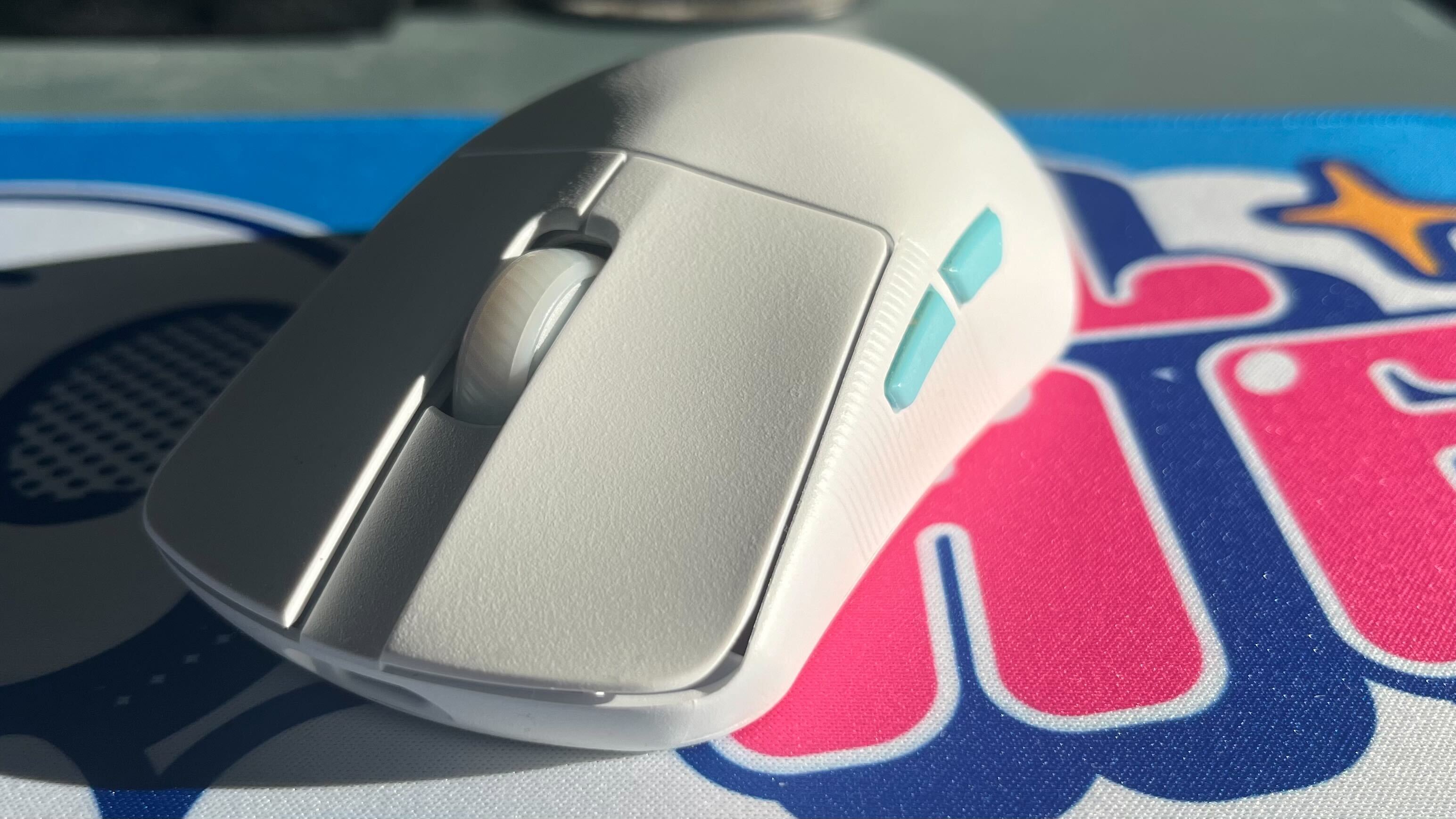
| Connection type | Wired (USB-C), Bluetooth, 2.4GHz wireless |
| Ergonomics | Right-handed symmetrical |
| Buttons | 5 |
| DPI | Up to 36,000 |
| Switches | ROG Micro Switches |
| Weight | 1.90oz (54g) |
Should you buy the Asus ROG Harpe Ace Aim Lab Edition?
| Value | This isn’t a cheap mouse, but the price is reasonable given the high specs. | 4/5 |
| Design | The location of the DPI switch is annoying, but the rest of the design is comfortable and competitive. | 4/5 |
| Performance | This mouse is extremely fast, super lightweight and very accurate. | 5/5 |
| Average rating | The Asus ROG Harpe Ace Aim Lab Edition is a fantastic choice if you have the budget and are searching for a wireless esports mouse. | 4.5/5 |
Buy it if...
You want top of the line specs
The Asus ROG Harpe Aim Lab Edition features a staggeringly high 36,000 DPI and an impressive ultra light 1.90oz (54g) weight.
You need a lightweight mouse
The Asus ROG Harpe Aim Lab Edition isn’t the lightest mouse on the market, but you’re going to struggle to find wireless options that are much lighter.
You're already an Aimlabs user
It goes without saying, but the enhanced Aimlabs features could be a blessing if you already frequently use the software.
Don’t buy it if…
You’re shopping on a budget
Although the price is fair for what you get, there’s no denying that the Asus ROG Harpe Aim Lab Edition is not going to fit most budgets.
You can make do with a wired alternative
One way to save some cash is to consider some wired alternatives. A model such as the Razer DeathAdder V3 features lesser (but still very solid specs) for a much cheaper price. See the section below for other recommendations.
Asus ROG Harpe Ace Aim Lab Edition: Also consider
| Header Cell - Column 0 | Asus ROG Harpe Ace Aim Lab Edition | Razer Basilisk V3 Pro | Logitech G Pro X Superlight 2 Lightspeed |
|---|---|---|---|
| Price | $139.99 / £139.99 / AU$189 | $159 / £159 / AU$289 | $159 / £149 / AU$299 |
| Interface | Wired (USB-C), Bluetooth, 2.4GHz wireless | Hyperspeed Wireless, Bluetooth, Wired | Wired, Lightspeed Wireless |
| Ergonomics | Right-handed symmetrical | Right-handed | Right-handed symmetrical |
| Buttons | 5 | 11 | 5 |
| DPI | Up to 36,000 | Up to 30,000 | Up to 32,000 |
| Switches | ROG Micro Switches | Razer Optical Mouse Switches | LIGHTFORCE Hybrid Switches |
| Weight | 1.90oz (54g) | 3.95 oz (112 g) | 2.12oz (60g) |
Razer Basilisk V3 Pro
Depending on your preferences, you might appreciate spending a little extra for some of the additional features found on the seriously feature-rich Razer Basilisk V3 Pro. This includes far more buttons plus the ability to wirelessly charge the mouse while you play.
Read our full Razer Basilisk V3 Pro review
Logitech G Pro X Superlight 2 Lightspeed
An esports favorite, it's worth considering the Logitech G Pro X Superlight 2 Lightspeed. Although it sports lesser specs (with the notable exception of the 2,000 Hz report rate) better software could make this your pick.
How I tested the Asus ROG Harpe Ace Aim Lab Edition
- Tested for over a month
- Used for both gaming and productivity
- Tested with leading esports titles
I spent over a month using the Asus ROG Harpe Ace Aim Lab Edition every day. This included standard productivity tasks, plenty of internet browsing, and of course playing lots of different games. I was careful to test the mouse with fast-paced esports FPS titles, including Counter-Strike 2, Valorant, and Call of Duty: Modern Warfare 3.
That said, I also used the mouse for plenty of other games including Anno 1800, The Sims 4, and The Caligula Effect 2, where I found that it performed well in a range of genres. I predominantly used the mouse with its wireless receiver, but was sure to test the other connectivity modes too. I experimented with both the ROG Armory Crate software and Aimlabs to try out all of the available features.
As a hardware writer over at TechRadar's sister site TechRadar Gaming, I have plenty of experience going hands-on with all kinds of gaming peripherals every day. I’m also a pretty avid FPS player and have played lots of games using a variety of different mice over the years.
First reviewed February 2024

Dash is a technology journalist who covers gaming hardware at TechRadar. Before joining the TechRadar team, he was writing gaming articles for some of the UK's biggest magazines including PLAY, Edge, PC Gamer, and SFX. Now, when he's not getting his greasy little mitts on the newest hardware or gaming gadget, he can be found listening to J-pop or feverishly devouring the latest Nintendo Switch otome.
